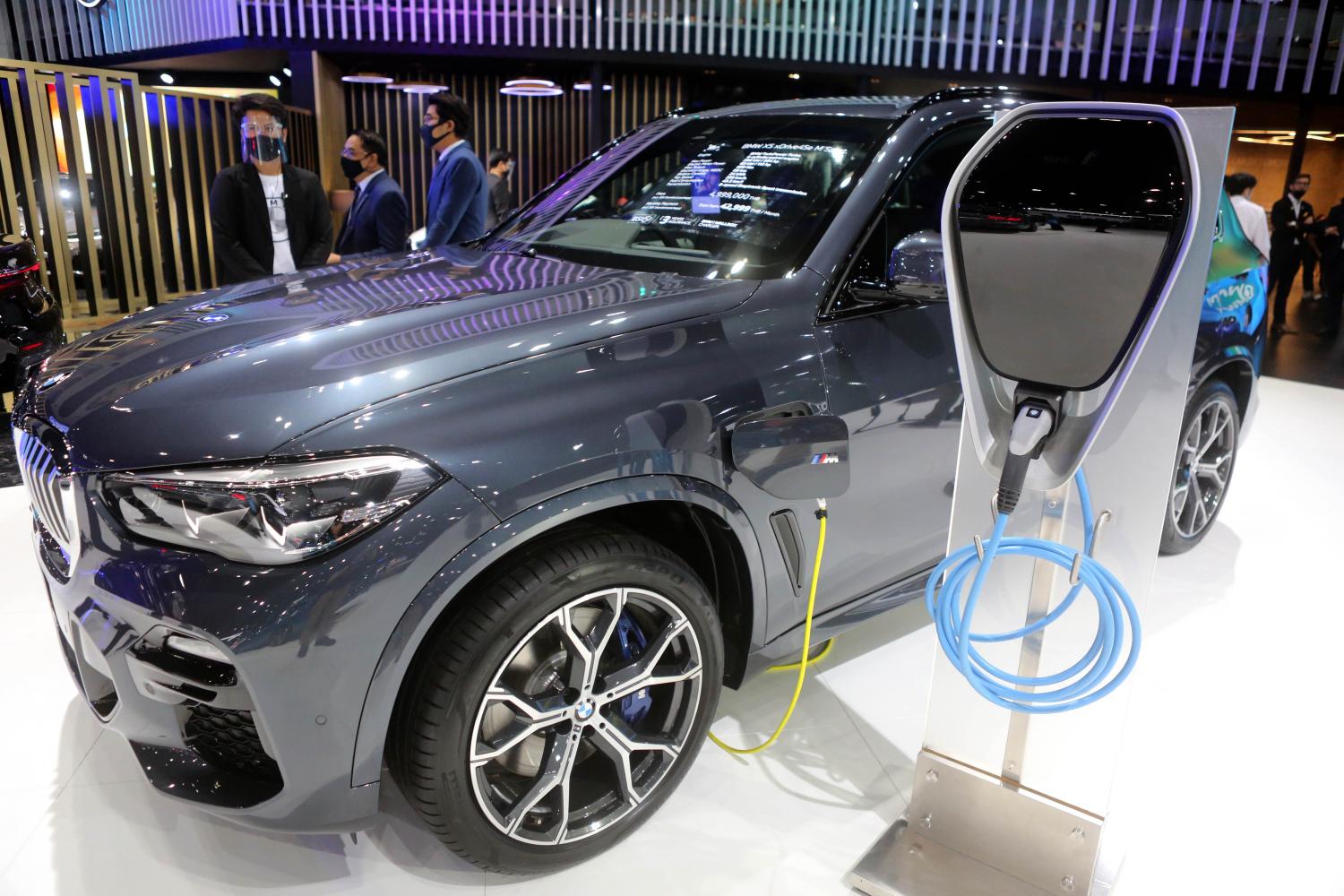
The Finance Ministry plans to propose to the cabinet a reduction of the import duty for electric vehicles (EVs) to 40%, 20% and zero percent, each depending on the engine size, says Deputy Finance Minister Santi Promphat.
He said smaller EVs should be subject to lower import tax rates than larger ones as part of the ministry's plan to promote their adoption.
The ministry also considered an appropriate subsidy to support consumers' EV purchases, said Mr Santi.
EV producers can qualify for all government support measures if they set up manufacturing bases in Thailand, he said.
If producers import one car under the government's support measures, they will have to produce 1.5 cars in Thailand to qualify for the incentives.
Producers must also set up the local plants within 2-3 years after receiving the government incentives, said Mr Santi.
A ministry source who requested anonymity said the subsidy for prospective EV buyers is unlikely to be lower than the amount provided for the first-car scheme launched by the Yingluck Shinawatra government.
The scheme returned up to 100,000 baht of vehicle excise tax to buyers of their first car.
The source said consumers are unlikely to consider the number of EV charging stations as a disincentive discouraging them from buying an EV.
EVs, when fully charged, can travel for 400-500 kilometres before needing to be recharged.
The distance from northern Thailand to the southern portions is around 2,000km.
The source said 40-50 charging stations nationwide should be sufficient to serve EVs.
Thailand's EV import tax rates vary. EVs imported from China enjoy a 0% tax rate under a bilateral agreement between the country and Thailand.
EVs imported from South Korea are hit with a 40% import tax, while those from Europe face an 80% rate.







